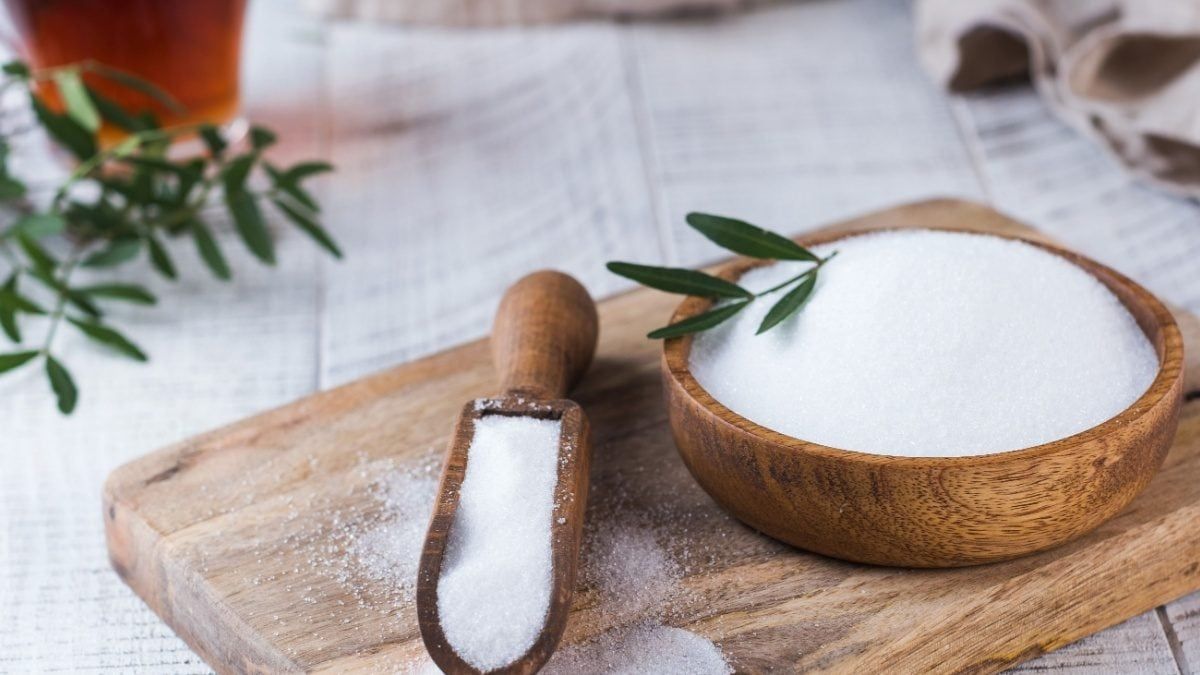Given the potential risks, it is advisable to limit the regular consumption of artificial sweeteners.
While artificial sweeteners offer a convenient way to reduce calorie intake, their potential health risks, particularly with regard to cardiovascular disease, cannot be ignored.
Artificial sweeteners have become a popular alternative to sugar, especially for those looking to reduce calorie intake and control weight. However, recent studies have raised concerns about the safety of these sugar substitutes, linking them to an increased risk of serious cardiovascular diseases, including heart attacks and strokes. This article explores the potential health risks associated with common artificial sweeteners and offers safer alternatives.
Dr Anesh Jain, consultant cardiologist at Ruby Hall Clinic, explains the risks of common artificial sweeteners:
- ErythritolErythritol is a sugar alcohol that is often used as a low-calorie sweetener in various food products. While it is considered safe to consume, recent research suggests a possible connection between erythritol and an increased risk of heart attack or stroke. The mechanisms underlying this relationship are not entirely clear, but scientists believe that erythritol may contribute to cardiovascular disease by promoting the production of inflammatory radicals in the body and disrupting the gut microbiome.
- AspartameAspartame is a widely used artificial sweetener found in many diet sodas and low-calorie products. Studies have indicated that regular consumption of aspartame may be associated with an increased risk of stroke. Although the exact cause of this association remains uncertain, it is thought that aspartame may cause metabolic changes and inflammation, which could increase the risk of cardiovascular events.
- Sucralose and Acesulfame PotassiumSucralose and acesulfame potassium are commonly found in sugar-free packaged foods and beverages. Both sweeteners have been linked to an increased risk of coronary artery disease and heart attacks. Like erythritol and aspartame, the potential health risks of sucralose and acesulfame potassium may be due to their effects on inflammatory processes and gut health.
How do artificial sweeteners increase cardiovascular risk?
Despite growing evidence suggesting a link between artificial sweeteners and cardiovascular disease, the exact mechanisms remain unclear. However, several hypotheses have been proposed:
- Inflammatory radicalsArtificial sweeteners can promote the production of inflammatory radicals in the body. These radicals can cause oxidative stress and inflammation, contributing to the development of cardiovascular diseases.
- Alteration of the intestinal microbiomeThe gut microbiome plays a crucial role in overall health, including cardiovascular health. Artificial sweeteners can disrupt the balance of beneficial bacteria in the gut, which can lead to adverse health consequences, such as an increased risk of heart attack or stroke.
Should you avoid artificial sweeteners?
Given the potential risks, it is advisable to limit regular consumption of artificial sweeteners. Diet sodas and low-calorie flavored drinks are the main sources of these sweeteners for most people. While occasional consumption may not pose a significant risk, daily intake could potentially increase the likelihood of developing life-threatening cardiovascular diseases.
Safer alternatives to artificial sweeteners
- SteviaStevia is a natural sweetener derived from the leaves of the Stevia rebaudiana plant. It is considered a safer alternative to artificial sweeteners as it does not appear to have the same adverse effects on cardiovascular health. However, like all sweeteners, it should be consumed in moderation.
- Healthy Homemade DrinksAnother safe alternative to artificial sweeteners is to make healthy drinks at home. For example, you can mix natural sodas with fruit juices made from fresh fruit. This way, you can enjoy the fizz of carbonated drinks with the natural sweetness and nutritional benefits of fruit juice, while avoiding the potential risks associated with artificial sweeteners. While artificial sweeteners offer a convenient way to reduce calorie intake, their potential health risks cannot be ignored, particularly when it comes to cardiovascular disease. Erythritol, aspartame, sucralose, and acesulfame potassium have all been linked to an increased risk of heart attack and stroke, likely due to their effects on inflammation and gut health. To minimize these risks, it is advisable to limit your consumption of artificial sweeteners and opt for safer alternatives such as stevia and homemade fruit juice-based drinks. Prioritizing natural, whole foods is always a better option for maintaining optimal health and well-being.












